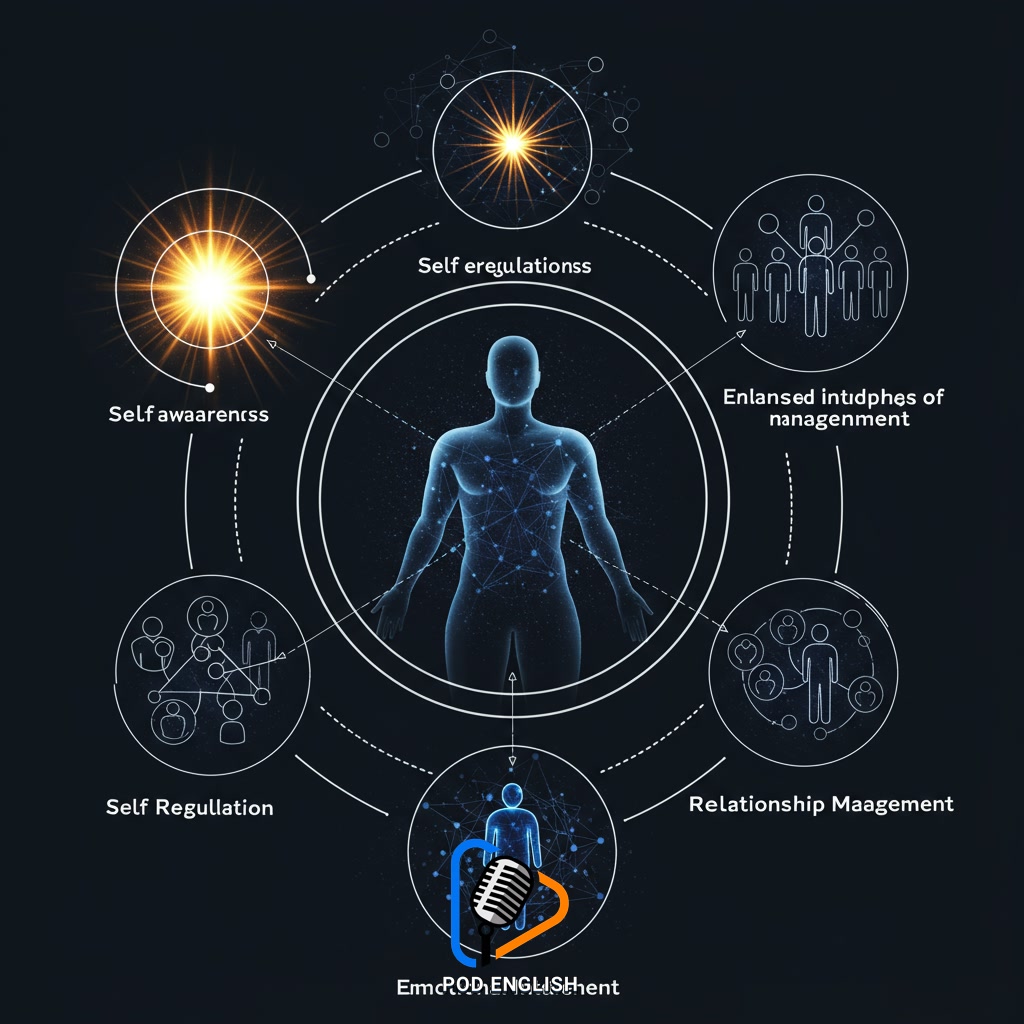Learn English
Emotional Intelligence Boosts English Learning and Academic Performance

Emotional intelligence significantly enhances effectiveness in acquiring the English language. This positive impact extends to improving general academic performance. Individuals with higher emotional skills tend to achieve better educational results. The relationship between emotional competence and success in learning English is a key point.
Table of Contents
- Section 1: Understanding Emotional Intelligence: Components and Importance
- Section 2: The General Role of Emotional Intelligence in Learning
- Section 3: How Emotional Intelligence Specifically Boosts English Language Learning
- Section 4: The Link Between Emotional Intelligence and Overall Academic Performance
- Section 5: Practical Strategies for Developing Emotional Intelligence in Learners
- Section 6: Conclusion: Leveraging EI for Enhanced Academic Success
Section 1: Understanding Emotional Intelligence: Components and Importance
Emotional intelligence (EI) is the ability to understand and manage your own emotions, and to recognize and influence the emotions of others. Understanding EI involves exploring its key components: self-awareness (knowing your feelings), self-regulation (managing your reactions), social awareness (understanding others’ perspectives), and relationship management (handling interactions effectively). Grasping these fundamental elements is crucial because they form the basis for developing stronger emotional skills. Recognizing these components helps individuals identify areas for personal growth, leading to improved communication, better decision-making, and enhanced ability to navigate social situations, which are all vital for effective learning and personal development.

Section 2: The General Role of Emotional Intelligence in Learning
Emotional intelligence plays a crucial general role in enhancing the learning process. By developing self-awareness, learners can identify their emotional states, recognizing feelings like frustration or excitement that impact their study habits. Self-management skills enable them to regulate these emotions, maintaining focus, overcoming procrastination, and staying motivated even when faced with difficult subjects. Social awareness helps students navigate interactions within educational settings, understanding group dynamics and perspectives. Furthermore, strong relationship management skills foster positive connections with educators and peers, creating a supportive environment conducive to learning. Ultimately, a higher level of emotional intelligence equips individuals with the resilience, focus, and interpersonal skills necessary to engage more effectively with academic material and challenges across any subject.

Section 3: How Emotional Intelligence Specifically Boosts English Language Learning
Building on the foundation of self-awareness, emotional intelligence directly impacts English language acquisition. Managing frustration, a common feeling when encountering difficult grammar or vocabulary, prevents learners from giving up. Self-motivation, another key emotional skill, helps maintain consistent study habits even when progress feels slow. Furthermore, empathy and social awareness are crucial for effective communication in English; understanding non-verbal cues and cultural contexts allows learners to interpret meaning more accurately and respond appropriately. Overcoming anxiety about speaking or making errors, facilitated by emotional regulation, encourages practice and builds confidence. By applying these emotional competencies, learners navigate challenges, stay engaged, and accelerate their proficiency in listening, speaking, reading, and writing English.

Section 4: The Link Between Emotional Intelligence and Overall Academic Performance
Building on the foundation of self-awareness, emotional intelligence directly impacts English language acquisition. Managing frustration, a common feeling when encountering difficult grammar or vocabulary, is crucial. Extending this, the ability to regulate emotions like stress and anxiety significantly boosts overall academic performance. Students who can manage exam stress or bounce back from a low test score are better equipped to persevere across all subjects. Self-motivation, another key component of emotional intelligence, helps learners stay focused and committed to challenging coursework, whether it’s math, science, or history. Furthermore, understanding and responding appropriately to the emotions of peers and instructors fosters better collaboration and a more positive learning environment, ultimately contributing to greater academic success in various disciplines.

Section 5: Practical Strategies for Developing Emotional Intelligence in Learners
Developing emotional intelligence involves actionable steps learners can integrate into their daily routine. Building on recognizing emotions, learners can practice techniques like mindful breathing or taking short breaks when feeling overwhelmed by challenging English material. Actively listening to others, both native speakers and peers, helps cultivate empathy and improves comprehension in conversations. Seeking and giving constructive feedback fosters better relationships and strengthens communication skills. Setting realistic learning goals and celebrating small achievements boosts self-motivation and resilience. Regularly reflecting on learning experiences – what worked well, what was challenging, and how feelings impacted the process – enhances self-awareness, making the learning journey smoother and more effective.

Section 6: Conclusion: Leveraging EI for Enhanced Academic Success
In conclusion, actively applying the emotional intelligence skills discussed, such as recognizing and managing emotions and practicing empathy, is crucial for unlocking your full potential in English learning and academic pursuits. By consciously leveraging your emotional intelligence, you cultivate a more positive and effective learning environment for yourself. This enables improved focus, greater resilience in facing challenges, and enhanced interaction with peers and instructors. Ultimately, developing and utilizing emotional intelligence is not merely about managing feelings; it is a powerful and practical strategy for achieving enhanced educational outcomes and sustained success in your studies, particularly as you navigate the complexities of language acquisition.














